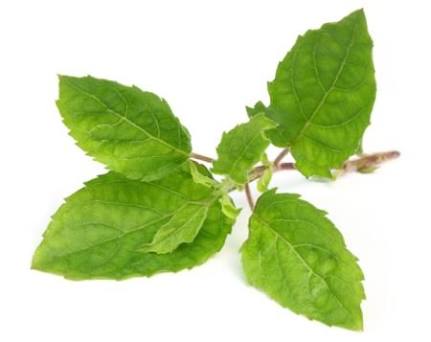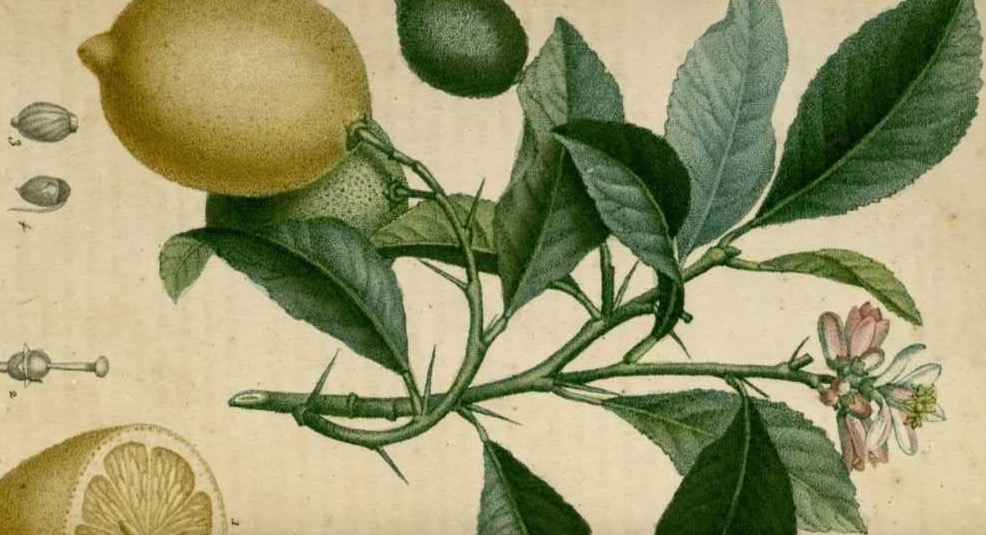I only met Dimitri’s father once, a brief conversation on a hot summer afternoon in his kitchen in Mildura. Many years later in our own garden, Dimitri tucked a sprig of basil behind his ear and smiled saying, “Just like my father used to do”. And my memory of his father Ioannis collided with the sweet pungent aroma of the basil and Ioannis eau de cologne began to take shape in my mind. Fast forward to the autumn harvest of pomegranates and Piero from Tabletop grapes heard we were distilling a hydrolat from this divine fruit and arrived with a swag of fresh cut rosemary from their garden. 4 hours later we had produced 8 litres of peppery rich rosemary hydrolat and the idea of Ioannis moved to the perfume studio.
I love this cologne with its Mildura origin and all things mediterranean. My intent was to design a post-shave skin tonic for Dimitri that evoked his father but it evolved into a perfume most favoured by women in our Mildura Valentina launch. Sitting in our perfume studio to sketch this one out, a layering of ideas, plant loves and skin knowledge played out. My background is a Bachelor of Health Science with Honours that included 2 years of botanical science and phytopharmaceutics, so it’s second nature to link my perfume design to hormone, mood and skin health principles. I wanted the botanicals to reflect the mediterranean garden that Ioannis cultivated on his large dried fruit block in Mildura, and for them to have both skin and health properties but mostly I wanted this cologne to hold true to his personality.
Dimitri speaks about his father Ioannis with a deep respect and love for his integrity and patience, his quiet inner strength, and steadfast labours. These are the beautiful humble human qualities that are disappearing from our culture and so this fragrance is in honour of these inner attainments.
To my perfume perception brain, the heart of this perfume is held in a noble place through the meeting of the sacred basil with the upright rosemary.

When Dimitri’s father tucked Basil behind his ear he was expressing a culture of plant use that dates back centuries – using aromatic herbs in the everyday for more than just culinary reasons. Although the family cultivated the intensely fragrant Greek basil (Ocimum minimum), it was the culinary Genovese basil (Ocimum bacilicum) that would slowly wilt and release its sweet spicy aromatics for Ioannis as he worked around the block.
In India it is customary for Sacred basil (Ocimum sanctum or Tulsi) to be placed in Tulsi pots near the entrance to the home for purification and protection. As you enter the house you can pick the leaves to bruise and inhale, or to nibble on. The medicinal use of Sacred basil dates back thousands of years to the Vedic scriptures. It is still used today for the same reasons and is classed as having adaptogenic properties. This means it can work across the whole body adapting itself to create health and balance via homeostasis.
Research shows that Sacred basil regulates serum cortisol levels to balance hormonal and thyroid activity in the body. It’s phytochemicals have anti inflammatory and significant application in cancer treatment. These plant qualities when combined with beautifully extracted aromatics in the perfume composition, make an organic botanical luxurious perfume a therapeutic and health supporting experience. These are important considerations if you are prioritising fertility, wellness and vitality in your lifestyle.
For deeper reading, there is a well-referenced article linked below.
As a partner for Basil I chose Rosemary – also a native of the mediterranean and with extensive use in folk medicine. This herb is richly antioxidant with a long history of use as an anti-inflammatory agent for muscles and nerve pain and also for hair and scalp health. It’s internal indications are significant and benefit the production of bile in the gallbladder as well as lowering cortisol (stress hormone) levels.
Follow the link below for more reading about rosemary.
In Ioannis, I’ve included rosemary in both oil and hydrolat form.
 Hydrolats are the waters that we collect when we are steam distilling botanicals. A hydrolat contains small amounts of essential oils, but we are primarily distilling the botanicals for the therapeutic plant chemicals that can be preserved in water form.
Hydrolats are the waters that we collect when we are steam distilling botanicals. A hydrolat contains small amounts of essential oils, but we are primarily distilling the botanicals for the therapeutic plant chemicals that can be preserved in water form.
We make hydrolats by heating plant material in a still using steam or hydro distillation to form vapours. The vapour part contains many therapeutic chemicals released from the plant and when the steam is cooled it turns back into a liquid that holds the water soluble compounds from the plant that are not available in the essential oils. Some of the phytochemicals from the distilling are oily and can be extracted off, with the bulk remaining suspended in the water. Hydrolats have a specific pH that enables them to store for prolonged periods without spoiling.
In the coming years we will see them in cafes and restaurants to add dimension and value to the table waters consumed with a meal – Bay and Basil hydrolat with Italian flavours, Saffron-Cardamom with Moroccan cuisine…
Hydrolats are also know as hydrosols. The skin care industry promotes the use of hydrosols in skin care. These hydrosols are usually highly fragrant. I use the term hydrolat to distinguish it as being therapeutic plant water that may or may not be highly fragrant. The water part in our perfumes is always a hydrolat and may also be highly aromatic, adding to the perfume profile. But it might not be!
And hydrosols are not to be confused with floral waters – water that has had an essential oil added with a dispersing agent to emulsify the oil. So a floral water only contains essential plant oils and none of the water soluble plant therapeutics.
Designing a cologne with basil at its heart lead me to my supply of Labdanum resin. Such a fascinating substance – balsamic and fruity with rich tobacco and musky undertones, this resin has been cultivated since biblical times via the shepherds of Asia Minor. They noticed an aromatic resin caught in the fleece of their goats as they grazed over the herbaceous rockrose plant. These fleeces became prized for their aroma and men wove the aromatic strands into their beards or the resin was removed and used as incense. Eventually large combs called ladanisterion with thick leather thongs were made to draw over the plants during the hottest part of the day when the resin was at its most viscous. The resin attached to the thongs was scraped off into lumps to be melted down for use. Today in northern Crete there is still a small region that produce the labdanum in this manner.
In Ioannis it is the fixative par excellence for the fruity herbaceous notes and reflects the integrity of the perfume’s origin. And I adore working with the black viscous mass as it moves from a resin to a liquid and distills into an infusion. (You may recall that Labdanum makes an appearance in and as the name sake for our eau de parfum Black Ghazal where it fuses with the narcotic Jasmine notes.)
 The Mandarin and Lemon notes in Ioannis express the citrus that is cultivated across Mildura. They absolutely must be organic because the oil is sponge pressed from their skins – no Monsanto chemicals in your perfume please!! The citrus notes seem to open the basil from the heart up to the top notes and yet the Mandarin also acts as a bridge into the base notes. These oils are beautiful on the skin – nourishing yet slightly astringent with a depurative action. Mandarin has a rich history of kitchen medicine use in Chinese medicine to promote digestion by regulating the stagnant energy via the gallbladder and stomach.
The Mandarin and Lemon notes in Ioannis express the citrus that is cultivated across Mildura. They absolutely must be organic because the oil is sponge pressed from their skins – no Monsanto chemicals in your perfume please!! The citrus notes seem to open the basil from the heart up to the top notes and yet the Mandarin also acts as a bridge into the base notes. These oils are beautiful on the skin – nourishing yet slightly astringent with a depurative action. Mandarin has a rich history of kitchen medicine use in Chinese medicine to promote digestion by regulating the stagnant energy via the gallbladder and stomach.
The oil has bactericidal and fungicidal properties and circulates blood and lymph under the skin and its cytophylactic properties support cellular rejuvenation – perfect for skin rejuvenation.
Can you can see the skin health theme revealing itself in all parts of this perfume design? All the way down to the cedar base note. If you are on a journey of health, and detoxifying your body and environment, then it’s important that the perfume sprayed onto your pulse points that enters your lymph glands and blood stream, should be symbiotic with your health aspirations.
Each time that I inhale the Sacred basil mingling with the sweet citrus notes and notice how the cologne dries down to its herbaceous balsam base notes, I am reminded of the dignity and humility that Ioannis expressed as he walked around his land. Each day I smell traces of it on our linen and in the shirts in the washing basket – the treasured pleasures of living in a home where botanical perfume is used each day.
So buy Ioannis edc for yourself or a male friend and share it and you might feel that you are venturing out into the Mildura sunshine with your favourite shovel in hand and a sprig of basil behind your ear…
Here is the link for Sacred basil benefits: https://draxe.com/holy-basil-benefits/
Here is an extract from the Indian Journal of Experimental Biology with evidence-based indications for rosemary: http://www.bioline.org.br/request?ie99026